Discover the truth about hair growth with biotin! Unveil the science behind ‘Will my hair grow if I take biotin?’ Find answers here.
Known by another name, vitamin B7, biotin is necessary to promote keratin. Although you can buy many over-the-counter biotin pills, the substance is actually an essential enzyme found in the body. The breakdown of materials, including lipids, carbs, and more, depends on biotin. It guarantees that you have a productive day and aids in energy production. Reduced amounts of biotin, however, can cause brittle nails, thinning hair, red, scaly rashes, and more. In other words, biotin is necessary for hair development. But allow me to elaborate. Continue reading to learn how biotin can help you get the hair of your dreams.
Table of Contents
What is Biotin Deficiency? Will My Hair Grow If I Take Biotin?
Biotin cannot be kept; it dissolves in bodily fluids. While certain foods do contain trace levels of biotin, those who smoke, drink alcohol, don’t eat a well-balanced diet, or are pregnant are more likely to suffer from this deficit.
Symptoms of a biotin deficiency are : Thin hair, red rashes, conjunctivitis, seizures, skin infections, brittle nails, and neurological issues like depression, sluggishness, hallucinations, and paresthesia (pins and needles) in the extremities are all signs of a biotin deficiency.
Let’s Explore How Biotin Influences Hair Health, Growth and What is Biotin-Hair Growth Connection:
1. Key Role in Keratin Production:
Biotin, a water-soluble B-vitamin, plays a pivotal role in the production of keratin, the primary structural protein that forms hair strands. Adequate biotin levels support the creation of strong, resilient hair.
2. Nourishment for Hair Follicles:
Biotin contributes to the nourishment of hair follicles by aiding in the conversion of nutrients into energy. This energy is essential for the growth and maintenance of hair follicles, promoting healthier hair growth.
3. Strengthening Hair Structure:
By enhancing the infrastructure of keratin, biotin helps in fortifying the hair structure. This can potentially minimize hair breakage, making hair less prone to damage and improving overall hair strength.
4. Preventing Hair Loss and Thinning:
Biotin deficiency might lead to hair loss or thinning due to the essential role biotin plays in maintaining healthy hair follicles. Ensuring sufficient biotin intake can help prevent such issues.
5. Supporting Scalp Health:
Apart from benefiting hair strands, biotin also contributes to scalp health. A healthy scalp provides a conducive environment for hair growth, reducing dryness or flakiness that could impede hair growth.
6.Improving Hair Texture and Appearance:
Adequate biotin intake can enhance the texture and appearance of hair by promoting its overall health. This might lead to shinier, smoother, and more manageable hair.
Understanding Biotin’s Role in Hair Nourishment:
Vital Nutrient: Biotin, a crucial B vitamin, plays a pivotal role in maintaining healthy hair by aiding in the production of keratin, the protein essential for hair strength and growth.
Follicular Nourishment: Biotin nourishes hair follicles, supporting their health and potentially reducing hair breakage, leading to stronger, more resilient strands.
Energy Conversion: It assists in converting nutrients into energy, providing the necessary fuel for hair follicles to thrive and promoting overall hair health.
Promoting Thickness: Biotin intake may contribute to hair thickness and volume, enhancing the appearance and vitality of the hair.
The Science Behind Biotin and Hair Growth:
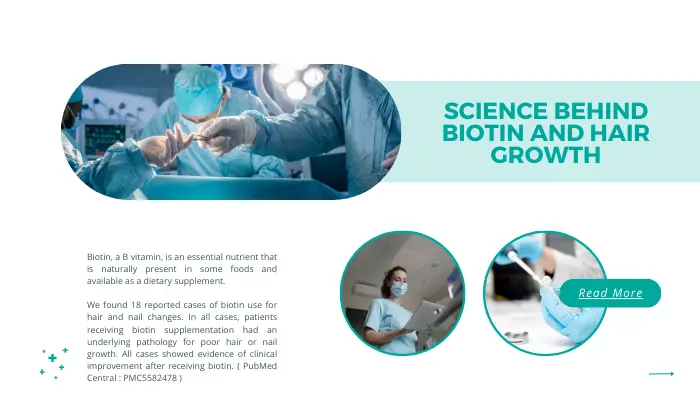
Clinical Research: Biotin is an alternative medication used in the management and treatment of pathological hair conditions (1). Several clinical studies have explored the correlation between biotin levels and hair health, investigating how biotin impacts hair growth, strength, and overall health.
Biotin, a B vitamin, is an essential nutrient that is naturally present in some foods and available as a dietary supplement (2).
We found 18 reported cases of biotin use for hair and nail changes. In all cases, patients receiving biotin supplementation had an underlying pathology for poor hair or nail growth. All cases showed evidence of clinical improvement after receiving biotin. ( PubMed Central : PMC5582478 )
Optimal Biotin Intake for Hair Health:
It is not possible to develop more hair by taking extra biotin tablets. Overconsumption of biotin can cause gastrointestinal distress, skin rashes, issues with insulin release, and kidney issues. As a result, only take the suggested or prescribed dosage.
Recommended Daily Intake: While there’s no specific daily intake established, experts suggest around 30 to 100 micrograms (mcg) of biotin per day for most adults to promote optimal hair health.
It takes roughly three to five months to start seeing noticeable hair growth when you start taking the proper biotin pills on a daily basis. Your hair will first start to fall out much less, and then it will start to grow back stronger and fuller. Lastly, it promotes the growth of hair.
Biotin Supplements vs. Natural Sources:
| Biotin Supplements: | Natural Sources of Biotin: |
| Convenient and concentrated doses of biotin available in pill or capsule form. | Found in various foods like eggs, nuts, seeds, avocados, and leafy greens. |
| Often marketed for hair, skin, and nail health but may vary in effectiveness. | Offers a diverse range of nutrients along with biotin, promoting overall health. |
| Easy to incorporate into daily routines but require consistent intake for potential benefits. | Requires dietary variation but supports holistic well-being beyond biotin supplementation. |
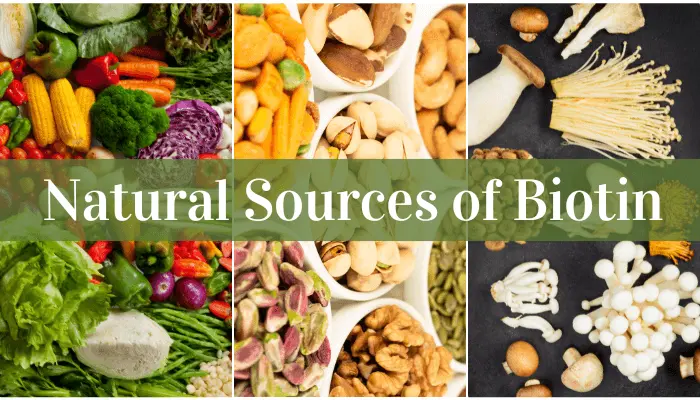
Natural Sources of Biotin:
- Eggs: Eggs, especially the yolk, are rich in biotin, providing a significant portion of the daily recommended intake.
- Nuts and Seeds: Various nuts like almonds, walnuts, and peanuts, along with seeds such as sunflower seeds and flaxseeds, contain decent amounts of biotin.
- Legumes: Legumes like lentils, chickpeas, and soybeans are good plant-based sources of biotin.
- Meat and Fish: Animal-based sources such as organ meats (liver), salmon, tuna, and other fish contain notable levels of biotin.
- Dairy Products: Dairy items like milk, cheese, and yogurt contribute to biotin intake, particularly when consumed regularly.
- Vegetables: Certain vegetables like sweet potatoes, broccoli, spinach, and avocados contain moderate amounts of biotin.
- Fruits: Fruits like bananas and raspberries are natural sources of biotin, albeit in smaller quantities compared to other foods.
- Whole Grains: Whole grain products, including oats, barley, and wheat germ, contain biotin, although the amounts might be relatively lower.
- Mushrooms: Some varieties of mushrooms, such as Portobello and shiitake, offer a modest amount of biotin.
Incorporating biotin-rich foods like eggs, nuts, seeds, avocados, and salmon into your diet can naturally boost biotin levels, contributing to vibrant hair.
Expert Advice:
Problem-Specific Solutions: Obtain guidance from hair specialists and healthcare professionals who offer tailored advice for improving hair health. Professionals offer targeted solutions for hair concerns like thinning, breakage, or scalp issues, ensuring personalized care.
Personalized Recommendations: Experts provide customized strategies, considering individual factors such as hair type, diet, and lifestyle for optimal results.
Latest Trends and Innovations: Stay updated on the newest trends, treatments, and innovations in hair care recommended by industry experts.
Holistic Approach: Experts often advocate for a holistic approach encompassing nutrition, proper hair care routines, and suitable products for healthier hair.
Conclusion:
While biotin is essential for hair health, its impact on hair growth might vary among individuals. Factors like genetics, overall health, and lifestyle can influence how biotin affects hair.
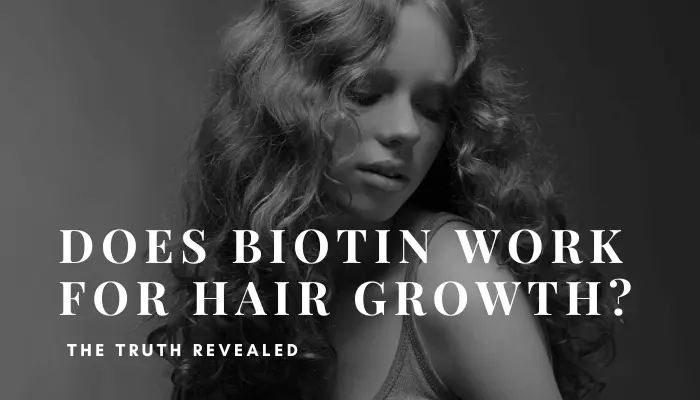
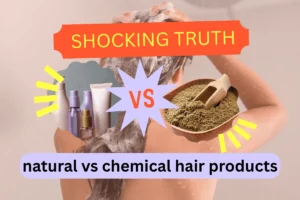


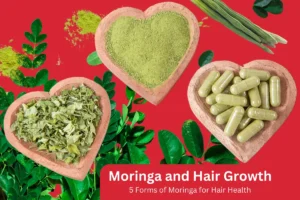



2 thoughts on “Will My Hair Grow If I Take Biotin?”